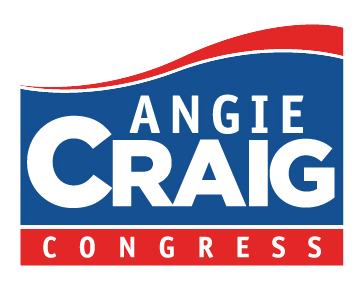By: Sun ThisWeek Staff
7/1/2020
The Government Accountability Office issued a report June 25 showing U.S. Rep. Angie Craig’s Payment Integrity Information Act led the government to halt improper economic assistance payments, according to Craig’s office.
According to the GAO report, during the first three rounds of economic assistance payments, Treasury and IRS officials issued payments to people who were dead. It was only after these payments were reported in the news that the IRS decided to remove decedents from receiving payments in the fourth round. As stated in the GAO report, government officials determined, “such payments are potentially improper payments under the Payment Integrity Information Act of 2019.” Craig introduced this bill in the House of Representatives, and it was signed into law on March 2, 2020.
“It’s a failure that the Administration did not follow the Payment Integrity Information Act for the first three rounds of payments, but it’s rewarding to see the GAO recognize the importance of my bill’s role in stopping these improper payments,” said Craig. “I’m pleased that President Trump signed my bill into law but now it’s time to put it into operation to end improper payments and protect taxpayer dollars.”
GAO calls Craig’s bill, the Payment Integrity Information Act, one of the leading pieces of their Fraud Risk Framework to continue to prevent fraudulent payments. Craig’s bill instructs that at a minimum before issuing any payment or award, each executive agency shall review as appropriate various databases to verify the eligibility of the payment and award, including death records maintained by the commissioner of Social Security.
Craig said she has repeatedly called on the Administration to implement this critical legislation. She said the Payment Integrity Information Act safeguards and saves billions of taxpayer dollars by:
• Requiring agencies to undertake additional efforts and develop plans to prevent improper payments before they happen.
• Improving the way agencies identify programs with the highest risk of improper payments.
• Requiring the Office of Management and Budget and the Council of Inspectors General on Integrity and Efficiency to issue guidance to improve annual reporting on agencies’ compliance with improper payment statutes.
• Creating a working group that will enable federal agencies to collaborate with each other and non-federal, such as state governments, to develop strategies for addressing key drivers of improper payments, such as fraud and eligibility determinations in state-managed federal benefits programs.
